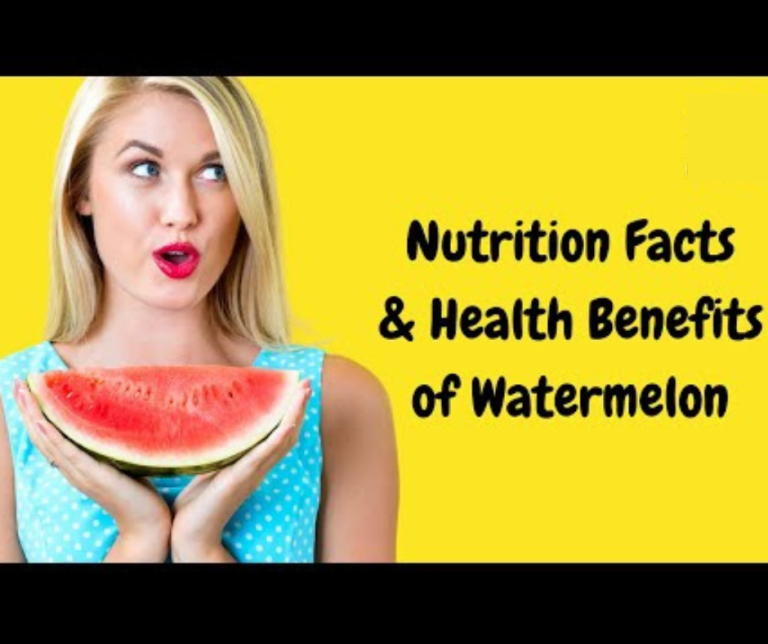In this article we will discuss the nutritional value of watermelon. Do you want to capture the true essence of summer? Just one slice of watermelon is enough. Even the very idea of it can make you feel calm and brings back memories of picnics, sunbathing, and backyard barbecues. Mark Twain once eloquently expressed his admiration for watermelon, stating, “It is chief of this world’s luxuries, king by grace of God over all the fruits of the earth.”
We wholeheartedly concur. In addition to making you feel good, watermelon has amazing nutritional and physiological advantages. If you’re not indulging in this superfood, especially during the summer when it’s at its sweetest, it might be time to reconsider the nutritional value of watermelon.
Watermelon Origin
It’s origin trace back to Africa, where Egyptians savored it over 5,000 years ago. Today, there exist a staggering 1,200 varieties of watermelon, with the United States and Mexico cultivating between 200 and 300 different types.
Dive into the Nutritional Value of Watermelon
Among the most favored watermelon variants are seeded, seedless, mini, yellow, and orange-fleshed. What’s truly remarkable about all these varieties is their composition. Watermelon boasts a water content of 92%, contains a mere 46 calories per cup, and has zero fat. However, these are just the tip of the iceberg when it comes to the merits of watermelons.

Nutritional Value of Watermelon
For every 100 grams of watermelon:
Calories: 34
Carbohydrates: 8 grams
Protein: 0.6 grams
Fiber: 0.4 grams
Fat: 0.2 grams
Good for Digestion
The watermelon is 92 percent water, contains only 46 calories per cup, and has zero fat. But that’s just where all the goodness of watermelons begins. This fruit is so rich in antioxidants; you aren’t going to want to go without ever again. Because watermelon is mostly water, it can play an important role in keeping you hydrated. We know that proper hydration keeps our wheels running, as it helps to regulate our body temperature, cushions our joints, and moves waste out of our bodies. At least 20 percent of our water intake actually comes from the food we consume, and eating watermelon not only keeps you hydrated, but that high water content also helps your body feel full.
Watermelon is a good source of:
Vitamin C
Vitamin B6
Vitamin A
Additionally, it is abundant in antioxidants like lycopene and vital minerals like potassium, magnesium, phosphorus, and zinc.
Fitness enthusiasts should know the nutritional value of watermelon, as it provides essential pre-workout energy. It’s particularly suitable for cutting goals due to its low-calorie nature. Watermelon is simple to digest and rich in vitamin C and A, both of which help muscles repair.
As a bonus, it can also help alleviate morning sickness in pregnant women by restoring lost hydration, while at the same time serving as a natural aid for easing heartburn and reducing swelling. And, according to a study published in the Journal of Agricultural Food and Chemistry, if you drink watermelon juice — which is just watermelon that has been put in a blender — before a strenuous workout, it can help reduce your heart rate and aid in recovery by relieving muscle soreness the following day. This is largely due to the fact that nutritional value of watermelon is considered high as it is full of the amino acids that aid in improving circulation.
We’re not done yet! Watermelon is also an incredible source of two powerful antioxidants: beta-carotene and lycopene. Lycopene has long been touted for the role it places in lowering the risk of cardiovascular disease and cancer, and while tomatoes generally take center stage when we talk about lycopene, just one cup of watermelon actually contains the same amount of lycopene as two medium tomatoes. And while tomatoes need to be cooked to realize the optimal amount of this rich antioxidant, watermelon does not, making it easily accessible. Lycopene may help in keeping your eyes healthy, warding off macular degeneration.
Also? The nutritional value of Watermelon is high as it contains large amounts of vitamins C and A, which play a critical role in the health of your hair and skin. And who doesn’t want good hair and skin? Vitamin C is needed for your body to make collagen, which is an essential protein for keeping your hair strong and your skin smooth and soft. Vitamin A aids in skin cell repair, too, which all leads to better skin.
Final Thoughts
However, consuming watermelon is not only beneficial to your health but also to the environment and your wallet. How so? It really is a waste-free food. Watermelon seeds are loaded with nutrients as well. The idea of ingesting them could be unsettling, especially if you’re aware of the urban legend that says a watermelon tree will begin to grow inside of you if you swallow the seeds.
First off, that’s untrue, just in case there are any remaining believers. In addition to the health advantages of the flesh, watermelon seeds are also a great source of magnesium, iron, and zinc, so you’re getting a lot of value for your money. Additionally, the rind is edible; if you haven’t made watermelon rind pickles, you must.

